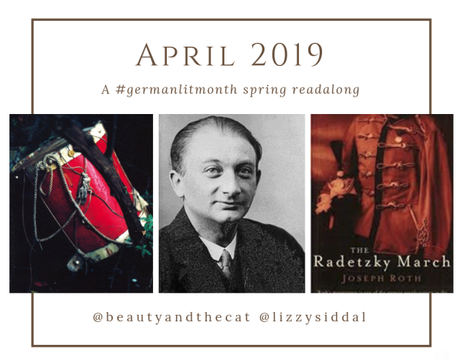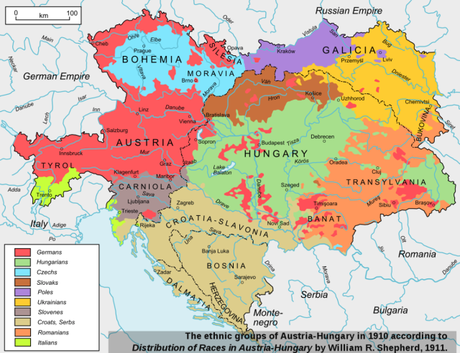
SPOILER WARNING – The answers and questions give away important plot points
There seems to be only one true and honest relationship in this novel—the friendship between district administrator von Trotta and doctor Skowronnek. Would you agree? What did you think of their relationship?
Until the moment when von Trotta and Skowronnek meet, the coldness of most of the relationships is quite disturbing. The way von Trotta treated his son is one of the examples that struck me. There was no warmth, no real interest, no understanding or empathy. That changes when von Trotta meets Skowronnek. It’s an almost magical encounter and I wasn’t surprised to see Roth compare it to love at first sight in calling it friendship at first sight. For the first time in his life, von Trotta changes and opens up and, also for the first time, begins to show some feelings towards his son. Skowronnek is a true catalyst.
Do you think the novel would have taken another turn, had Carl Joseph opened his father’s letter?
I’d like to think so but it’s not impossible that it wouldn’t because Carl Joseph, at that particular time, was beyond the point of no-return. Things had to get worse before they could get better, as is often the case with alcoholics or gamblers.
What is the significance of the regimental party at Chojnicki’s country house?
It was my favorite chapter by far. It contains everything that’s great about this book – the irony, the absurdity, the evocative descriptions of the weather, that underlines the looming catastrophe. The party shows what the life for the upper classes was all about at the time. And knowing this will be the last time that they will celebrate in this way, is eerie. The last moment of glory of a dying world.
Chapter 21 takes us to the Eastern front. What do you think about the way Roth depicts the conflict? How do you feel about the manner of Carl Joseph’s death?
In many ways, what Carl Joseph did was more heroic than what his grandfather did. His grandfather didn’t even get the time to think about what he was doing, while Carl Joseph was fully conscious of the risk. Of course, he was also tired of living and the consequences may not have been important for him. And, yes, he didn’t save a life but he was willing to help others.
What struck me the most in this chapter, is that we get a feeling for how vast the empire was. How many people were part of it.
I did add this map before, but I think it’s well worth adding it again here.

Did you find the ending satisfying?
Absolutely. I didn’t expect it to end with Skowronnek and found that very hopeful. He’s the only truly likable character because he has warmth and empathy and doesn’t care about conventions. He’s also capable of true friendship. To end with him, showing us how he moves on, is both hopeful and sad. I’d like to think of him as a man of a new era. A bit like Chojnicki but without being jaded or spoilt through incredible wealth. His relationship to money is very telling too. He doesn’t give because he has too much like Chojnicki but because he wants to help a friend.
The Radetzky March has been described as a nostalgic novel for a lost empire. Is nostalgic the adjective you’d use?
I didn’t find it nostalgic. The only slightly nostalgic chapter was the party at Chojnicki’s but it’s too full of irony to be truly nostalgic. Possibly the only nostalgic element was the epilogue, in which we see Skowronnek playing chess on his own.
What struck you the most in this novel, what do you like or dislike the most?
I’ve read it before, ages ago, and the one thing I didn’t remember and that struck the most now, was how male-dominated it was. And the way women are portrayed. They are all either dead/dying or unfaithful, sometimes both. If he’d wanted to include more female characters, I think, he would have had to write a much longer novel. All the other novels about the end of an era that come to mind, are larger canvases that include more female characters.
Would you reread The Radetzky March?
Given the state of my piles, I don’t think so but it’s not entirely impossible. It’s such a complex book that would deserve to be reread.
******
I’d like to thank everyone who participated. Lizzy and I truly appreciate it. Thank you all for your enthusiasm and your insighful comments and posts. I’ll try to visit those I’ve missed.
